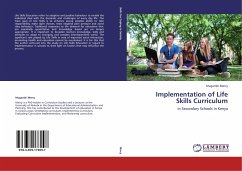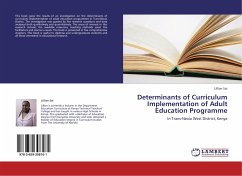Life Skills Education refers to adaptive and positive behaviour to enable the individual deal with the demands and challenges of every day life. The main goal of Life Skills is to enhance young peoples ability to take responsibility, make right choices, resist negative peer pressure and avoid risky behaviour. Traditional responses to the demand for education that are essentially quantitative and knowledge based are no longer appropriate. It is important to broaden learners knowledge, skills and attitudes to adapt to changing and complex interdependent world. The significant role played by Life Skills in way of improved social interaction, promoting health and education cannot be overlooked. It is for this that the author ventured into the study on Life Skills Education in regard to implementation in schools to shed light on factors that may influence the process.








